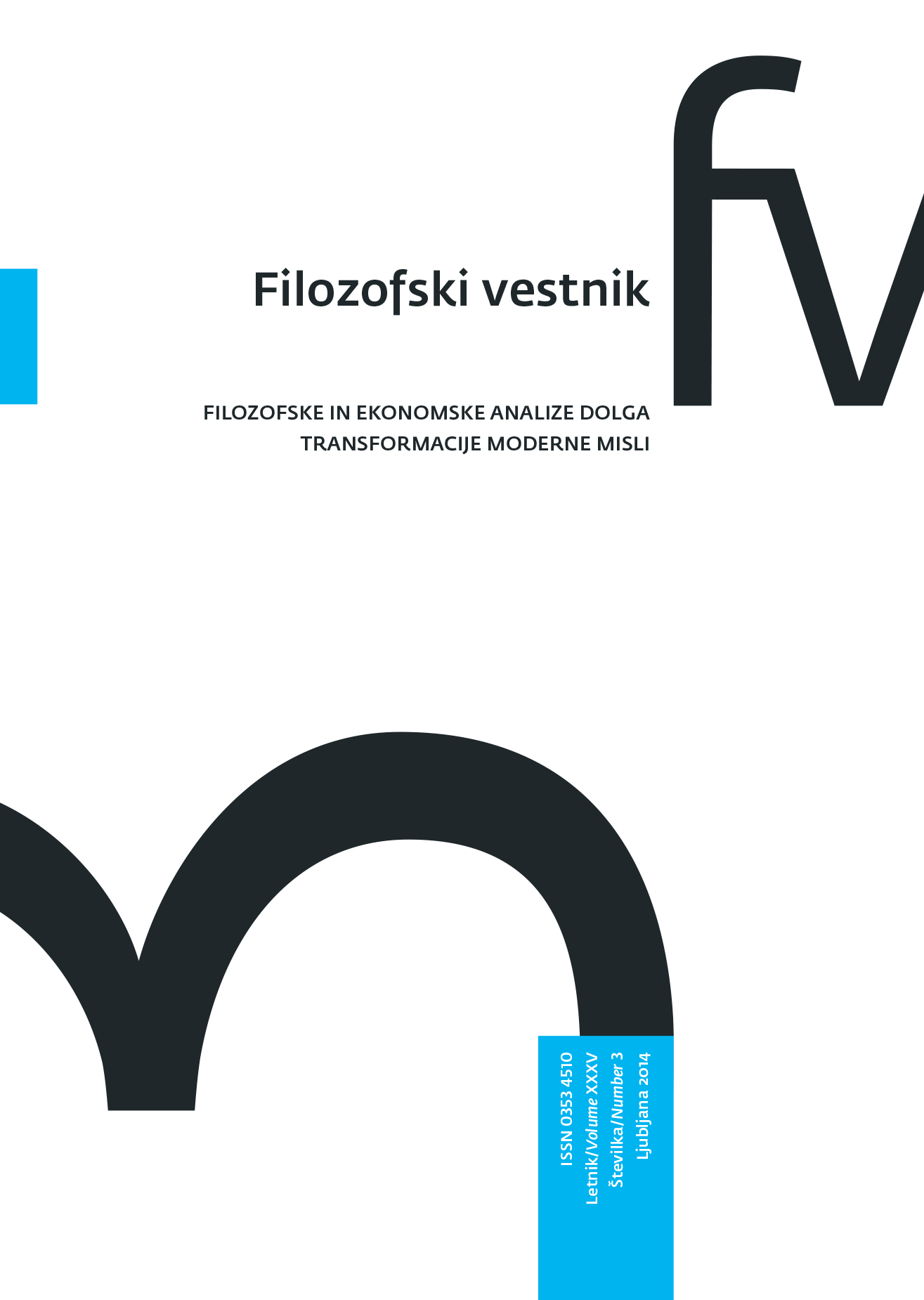Renesančni cogito, ali o okrutnosti objekta
Ključne besede:
cogito, Descartes, Erazem, Bosch, paradoksalni absolut, Žižek, »Kamen norosti«Povzetek
Osnovna naloga besedila je v prikazu, da je severno renesančna umetnost prek obravnave norosti in neumnosti razvila povsem nov tip gotovosti, ki ga ni moč povezati, ne z ontološkim argumentom, ne z empirično vednostjo. V članku na podlagi dveh primerov razvijemo argument, da ta nov tip gotovosti v celoti sloni na pojmovni invenciji, ki jo v prispevku imenujemo »renesančni paradoksalni absolut«, in jo je mogoče izraziti v obliki navidez protislovnega pravila: vse možne negacije X so forme ali stopnje samega X. Teza članka je, da ta tip renesančne gotovosti v sebi že vključuje večino komponent tega, kar Žižek imenuje »skrito nasprotje« kartezijanskega cogita. Oziroma z drugimi besedami, v članku skušamo pokazati, da za »izkopavanje« tega »skritega nasprotja« oziroma manjkajočega člena kartezijanske subjektivnosti, ni nujna vključitev kasnejših filozofij, kot je denimo Kantova, ampak predvsem analiza epistemoloških vidikov umetniških del kot sta Boscheva »Ekstrakcija kamna norosti« in Erazmova Hvalnica Norosti.Prenosi
Literatura
Božovič, Miran, »Descartes – dvom, gotovost, norost«, v: Dvom in norost, Analecta, Ljubljana 1990.
Descartes, René, Meditacije, Slovenska matica, Ljubljana 2004.
Derrida, Jacques, »Cogito in zgodovina norosti«, v: Dvom in norost, Analecta, Ljubljana 1990.
Erazem Rotterdamski, Hvalnica Norosti, Studia Humanitatis, Ljubljana 2010.
Foucault, Michel, History of Madness, Routledge, London – New York 2006.
Žižek, Slavoj, »Cogito in spolna razlika«, v: Filozofija skozi psihoanalizo VII, Analecta, Ljubljana 1993.
Žižek, Slavoj, The Ticklish Subject, Verso, London – New York 1999.
Prenosi
Objavljeno
Kako citirati
Številka
Rubrike
Licenca
Avtorji jamčijo, da je delo njihova avtorska stvaritev, da v njem niso kršene avtorske pravice tretjih oseb ali kake druge pravice. V primeru zahtevkov tretjih oseb se avtorji zavezujejo, da bodo varovali interese založnika ter da bodo povrnili morebitno škodo.
Podrobneje v rubriki: Prispevki





